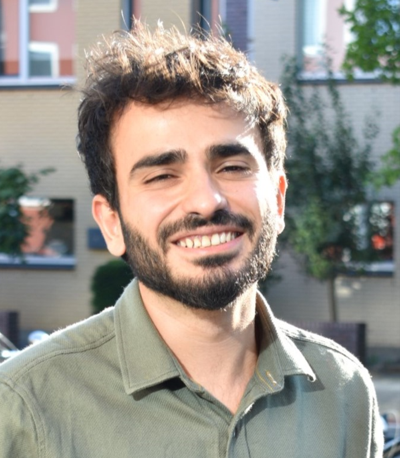Thermal Management Under Real-Time Constraints - Utilizing Temperature Dynamics for Optimal Performance
Baver Ozceylan is a PhD student in the department Design and Analysis of Communication Systems. (Co)Promotors are prof.dr.ir. B.R.H.M. Haverkort, dr.ir. M. de Graaf and dr.ir. M.E.T. Gerards from the faculty Electrical Engineering, Mathematics and Computer Science.
 Moore's Law suggests that the performance of integrated circuits doubles roughly every eighteen months, while the cost of producing them would remain the same. This technological development has led to smaller, faster, and more powerful devices, and, indirectly, to technologies like artificial intelligence, big data, and Internet-of-Things (IoT). While Moore’s law has held true for over five decades, new challenges have arisen, and the speed of doubling is slowing down. Thermal issues are one of these challenges and the main subject of this thesis. In line with Moore’s law, mobile devices have become powerful and started to incorporate more advanced features such as 5G connectivity and applications of artificial intelligence. Due to these resource-intensive tasks, mobile devices can generate significant amounts of heat. This further complicates the management of high temperatures since most mobile devices do not have active cooling systems such as fans or liquid cooling. Instead, they rely on passive cooling methods and temperature regulation strategies, which demands more sophisticated approaches for the management of high temperatures. As a result, the need for effective thermal management becomes more pronounced and thermal issues must be carefully considered in the use of these devices. In this thesis, we focus on mobile devices, investigate temperature dynamics under real-time resource-intensive tasks. Through this research, we uncover valuable insights into the dynamics of processor temperature. Utilizing these insights, we propose practical and effective methods to cope with thermal challenges at the software level. Additionally, we conduct experimental evaluations to validate our analytic analysis and to assess the effectiveness of our proposed methods. In conclusion, this thesis introduces a complete thermal management system that can be used in each and every device.
Moore's Law suggests that the performance of integrated circuits doubles roughly every eighteen months, while the cost of producing them would remain the same. This technological development has led to smaller, faster, and more powerful devices, and, indirectly, to technologies like artificial intelligence, big data, and Internet-of-Things (IoT). While Moore’s law has held true for over five decades, new challenges have arisen, and the speed of doubling is slowing down. Thermal issues are one of these challenges and the main subject of this thesis. In line with Moore’s law, mobile devices have become powerful and started to incorporate more advanced features such as 5G connectivity and applications of artificial intelligence. Due to these resource-intensive tasks, mobile devices can generate significant amounts of heat. This further complicates the management of high temperatures since most mobile devices do not have active cooling systems such as fans or liquid cooling. Instead, they rely on passive cooling methods and temperature regulation strategies, which demands more sophisticated approaches for the management of high temperatures. As a result, the need for effective thermal management becomes more pronounced and thermal issues must be carefully considered in the use of these devices. In this thesis, we focus on mobile devices, investigate temperature dynamics under real-time resource-intensive tasks. Through this research, we uncover valuable insights into the dynamics of processor temperature. Utilizing these insights, we propose practical and effective methods to cope with thermal challenges at the software level. Additionally, we conduct experimental evaluations to validate our analytic analysis and to assess the effectiveness of our proposed methods. In conclusion, this thesis introduces a complete thermal management system that can be used in each and every device.





